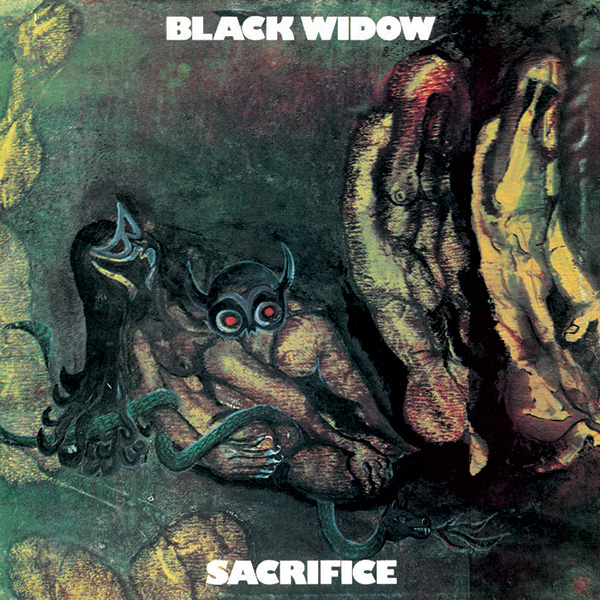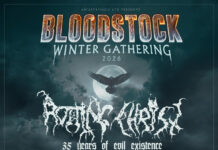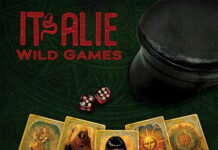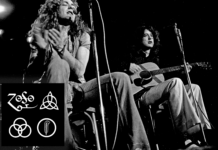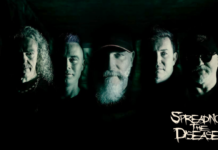Picture this: it’s the late 1960s and everything you thought you knew about music is getting turned upside down; the sonic landscape and the music scene were both evolving irrevocably. Groups were now ‘bands,’ albums were replacing singles as the criteria for success because, as bands like Led Zep showed, you didn’t need top 20 singles to be considered successful. The Beatles were no longer the four cute, cuddly mop-tops beloved of mums, dads and the tabloid press (even appearing on the ‘Morecombe & Wise’ show), as attested to by albums like Sgt Pepper. Mesnehile, The Stones were on their way to becoming ‘the greatest rock ‘n roll band in the world’ with career-defining albums like Beggars Banquet and the heavily Gram Parsons-influenced Let It Bleed. As Dylan was to sing later, “Everything is changing”.
Perhaps one of the most significant changes was in the lyrical content. Bands had widened their lyrical palettes and no longer simply espoused lovey-dovey lyrics and other such trite sentiments. Dylan had opened people’s minds as to what intelligent lyrical content could be in a song on albums like Blonde On Blonde, and with the seminal ‘Like A Rolling Stone,’ which became a benchmark for what a single could be. In sum, the times were definitely-a-changing and bands came to realise, not only did the fans now want and expect more from them, but the time was ripe to be experimental and to take risks. The envelope was there to be pushed, and bands could go further in musical and sonic exploration.
One band who rode the spirit of the times, and who were attempting something radically different in 1970, both lyrically and in stage presentation, was Leicester band Black Widow. They’d emerged out of a defunct white soul band, Pesky Gee, whose claim to fame was a not-very-inspired cover of Vanilla Fudge’s ‘Where Is My Mind?’ which did absolutely nothing and sank without a trace.
Taking their name, it was said, from an American advert showing a bereaved woman, dressed all in black after the funeral of her spouse, the death being due to an accident involving negligent driving (though other explanations have also been offered) Black Widow hit on the idea of using the medium of rock to express their interest in witchcraft and the satanic arts, and whilst other acts of the time paid lip service to the idea of the dark side, notably The Stones with ‘Sympathy For The Devil’ and Black Sabbath with their debut album, no band took the notion of the dark side as far as Black Widow. The tracks ‘Conjuration‘ and ‘In Ancient Days,’ from their debut album, are thought to be the forerunners of Black Metal. At this time, the band’s main vocalist was Kay Garrett, but she decided this new direction was not for her, so she left the band and Kip Trevor took over vocal duties. Had she stayed, who knows what might have happened?
Up to this point, only shock rocker Screaming Lord Sutch had done anything remotely similar, though his show involved coming onstage in a coffin and using Hammer Horror musical schlock; it was very much tongue-firmly-in-cheek and played for laughs. But in an era when Edison Lighthouse were proclaiming “love grows where my Rosemary goes,” and Tony Orlando & Dawn were exhorting us to “tie a yellow ribbon round the old oak tree,” Black Widow took their audience on a quite extraordinary adventure, far into the dark side.
Their debut album, Sacrifice, was released in March 1970, with every song being about Satan, black magic, demons and secret spells, and musically it was of its time, prog-tinged with flute, sax and Hammond organ. Their stage show consisted of the band performing the entire album in the form of a ‘black mass’ with appropriate dark imagery, the altar stage centre with pulsating lights, which ultimately culminated with the ritual sacrificing of the naked virgin, ‘Astaroth,’ and Kip Trevor on his knees bending over the terrified victim, arms slowly upraised whilst holding a knife, then plunging it into the said victim, all to the sounds of her screams and a throbbing violent beat whilst the music built up to a crescendo of screams and loud music, as the sacrifice is offered and the victim dies. It was quite a spectacle, and this writer can vouch for it as I saw Black Widow perform it in the summer of 1970, as a mere lad of seventeen.
This, however, became controversial because, to ensure the authenticity of their act, Black Widow took advice from Alex Sanders, who was then High Priest in the neopagan Wiccan religion and self-styled ‘King of the Witches,’ which helped create the desired spectacle. This drew the attention of the tabloid press, who mostly condemned the show. It also helped ensure their gigs often drew those whose interest was not in music, but in saving the souls of those about to experience, or who’d just experienced, this black mass, handing out leaflets offering spiritual counselling and guidance to anyone disturbed by what they’d just seen onstage. All this and four years before the release of The Exorcist!
Black Sabbath’s flirtation with the dark side rarely went further than wearing crucifixes, and there’s little evidence from the lyrics of their earlier albums they were serious about flirting with demonism, despite Ozzy demanding to know, “What is this which stands before me? Figure in black which points at me.” Black Widow went further than Sabbath ever dared go.
Black Widow’s gigs were often well attended, both by fans of the band and by those curious to see what the fuss was about, as well as by voyeurs with a prurient interest in seeing a naked young woman onstage. (In 1970, Stacia had yet to start dancing with Hawkwind.) Reviews of gigs were usually favourable, suggesting the band had the musical chops to back up their stage show, and the black mass wasn’t just a cover for poor musicianship, with several critics stating Black Widow were capable of generating the same impact bands like Black Sabbath were beginning to make. CBS included the track ‘Come To The Sabbat’ on the double sampler album, Fill Your Head With Rock, and the band played well-received gigs across the country, including the Plumpton festival (soon to be renamed the Reading festival) and the Isle of Wight festival.
However, the relative failure of Sacrifice, which only reached 32 in the album charts, saw the band moving away from the black magic imagery of the first album, and towards a more mainstream rock approach, and their second album, Black Widow, saw them reverting to songs about more worldly topics. Their stage show was now just the band playing songs, rather than pieces linked to a common theme, as was the case with Sacrifice. Poor reviews meant audiences began to drift away as, with a couple of notable exceptions, the newer songs lacked the impact of those on the debut album.
Songwriting had also been shared out. On Sacrifice, guitarist Jim Gannon had written all the songs, but on Black Widow, songs were contributed by other band members, which saw a mix of musical styles, from the jazz-tinged ‘Tears and Wine,’ to Crosby, Stills and Nash style harmonies on ‘When My Mind Was Young,’ to the prog influenced ‘Journey.’ This was the sound of a band who didn’t seem to know which way they were facing. The song ‘Mary Clarke’ was featured on the CBS sampler, Rockbuster, but did little to raise the band’s profile, and unlike Sacrifice, the second album didn’t even chart. At the very moment when the band should have been showing fans and critics they had what it took to follow their debut album and make their name, they released an album which stalled their onward momentum.
Personnel changes also helped stall their momentum. Unhappy with the level of internal dissension about the new musical direction, Bob Bond (bass) and Clive Box (drums) left the band, to be replaced by Jeff Griffith and Romeo Challenger, respectively. Soon after, Jim Gannon also left and, despite releasing a third album, Black Widow 3, an album along the lines of the previous release, with only one track, ‘The Battle,’ standing out. The band lost both momentum and direction and, after releasing a fourth album, which crept out virtually unnoticed, split later the same year.
They became more popular across Europe rather than the UK, because they were very rarely played on radio or TV, as the BBC then had a monopoly on the airwaves and refused to play singles like ‘Come To The Sabbat’, though the song has gone on to achieve cult status across Europe and has been covered by several artists. But, then, it’s hard imagining a standard 1970 Top of the Pops audience dancing along to Black Widow singing a chorus which went, “come, come, come to the sabbat, Satan’s there,” after being introduced by someone as bland as Simon Dee. Perhaps it’s not too difficult to understand why Black Widow didn’t feature on UK TV or radio, with songs from Sacrifice containing lyrics like ..
“ .. I stood in hell, a mortal man, between Belial and Satan,
and still before my audience, entranced in stark cold fear,
I cured or struck with sickness, death, or made insane my foes ..”
These songs were never going to be Tony Blackburn’s ‘record of the week,’ and even DJs like John Peel and Johnnie Walker were reluctant to play them.
Musically, Black Widow was also hard to define. After Sacrifice, which had a largely rock basis, they became a curious hybrid of different styles and never established an identity that would enable them to stand out from other bands. They weren’t a full-on riff-based rock band like Sabbath, Purple or Uriah Heep; they didn’t have a guitar hero in the line-up to help give them a higher profile, like Ten Years After, Taste and Groundhogs; despite using flute and sax, they weren’t like Traffic and If; they hadn’t come out of the late 60s blues boom, like Fleetwood Mac and Chicken Shack; and they weren’t part of the then-evolving prog rock genre being pursued and developed by bands like Van der Graaf Generator, Yes and Genesis. They certainly weren’t your average everyday top twenty band, like Amen Corner, The Foundations and the Equals.
Black Widow’s second album was a classic illustration of what occurs when a band’s main songwriter, for whatever reason, no longer writes all the band’s music, which results in a confusion of conflicting styles. Jethro Tull succeeded because Ian Anderson wrote all the songs and every album was consistent with Tull’s signature sound. Family also had conflicting musical styles, often on the same album, but they carried this off because of their superior musical ability, the strength of their songs and the charismatic onstage persona of vocalist Roger Chapman. Their one-time stable mates, Black Sabbath, were busy forging heavy metal and making albums with a relentless sonic assault. But despite Black Widow having one of the better vocalists on the underground scene in Kip Trevor, they were unable to compete with any of these bands.
Internal dissension also played a role. In November 2002, Clive Jones, flute/sax player, claimed: ‘Black Widow was a band which had it all, but was ruined by drink, drugs and jealousy.’ He attempted to put a version of Black Widow back together in 2012, with Geoff Griffith, releasing Sleeping With Demons and revisiting the previous black magic theme, but it did very little. Sadly, Clive Jones died from cancer in October 2014.
It’s anyone’s guess how long Black Widow could have continued with their black magic theme, as it may well have become passé once the initial shock value had dissipated. But they never fully settled on a musical direction, being unable to capitalise on the impact generated by Sacrifice, which led the band down a blind alley from which they never emerged, leading to the band’s dissolution.
But the band still has a cult following. So much so that in August 2024, Cherry Red Records released a 6-CD box set, Sabbat Days: The Complete Anthology 1969-1972, incorporating Pesky Gee’s album, the demo album pre-Sacrifice plus the band’s four albums, which include bonus tracks plus several live tracks.
NB: Clive Jones worked in care homes for several years, and claims to have put Ozzy Osbourne to bed during one of his phases in attempting to get sober!

